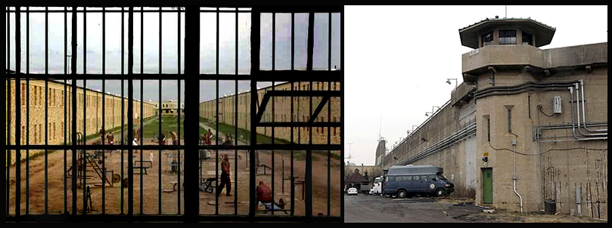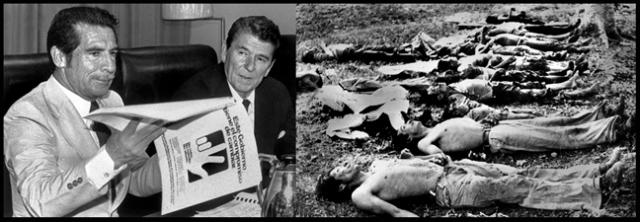The film The Act Of Killing is the big buzz in the world of cinema. The documentary about death squad killers in Indonesia in 1965 has to be one of the oddest films in recent memory. Imagine a filmmaker, in this case 38-year-old Joshua Oppenheimer, handing over control of his film to a handful of psychopathic killers so they can re-enact how they murdered their countrymen and -women.
The result is a riotous confusion of genres that both exacerbates and delights the senses and the mind. At the showing I saw in Philadelphia, several comments afterwards were critical and dismissive of the film — as in, how dare this guy give such a powerful venue of expression to such loathsome human beings.
It was a very good point.
 Anwar Congo, center in hat, and his killer pals driving in Jakarta. At right, filmmaker Joshua Oppenheimer.
Anwar Congo, center in hat, and his killer pals driving in Jakarta. At right, filmmaker Joshua Oppenheimer.
It’s like someone handed over the reins of a film production crew to Boston mob butcher Whitey Bulger and said, “How did you do it, Whitey? As we just heard in testimony in your trial, how did you strangle that young woman while her stepfather watched? Here, use this young woman volunteer and re-enact it for the cameras. Then, we’ll get the stepfather to re-enact how he dragged her dead body down to the cellar and extracted all her teeth with pliers. It’ll be great! And, Whitey … this is performance art, so have fun doing it. Smile a lot.”
That absurd scenario begins to get at the bizarre cinematic artifact Joshua Oppenheimer has wrought on film. The only difference is the Indonesian death squad killers who were strangling people and chopping off their heads did those deeds back in 1965 for political reasons, not Boston mob priorities. For me, that makes all the difference, turning a self-indulgent, macabre glorification of crime into a unique and politically potent work of genius.









